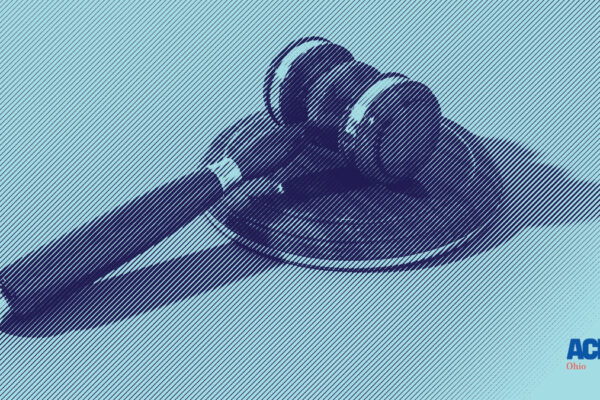COLUMBUS — On April 24 the ACLU of Ohio sued U.S. Immigration and Customs Enforcement (ICE) on behalf of immigrants detained in crowded jail facilities in Morrow and Butler Counties. There is at least one positive COVID-19 case in Morrow, and several positive cases in Butler. The ACLU of Ohio seeks the release of individuals who are in civil detention and at high risk for serious illness or death in the event of contracting the virus.
Earlier this month the ACLU of Ohio filed a similar lawsuit on behalf of individuals detained by ICE in Geauga and Seneca county jails, and have successfully secured the release of three at-risk immigrant detainees.
Elizabeth Bonham, Staff Attorney for the ACLU of Ohio: “If these county jails follow the pattern of Ohio’s state prisons, the number of confirmed cases is likely to explode exponentially. Our clients must be released to their families and communities where they can be safe.”
Freda Levenson, Legal Director for the ACLU of Ohio: “Social distancing is simply impossible for immigrants in crowded detention centers. Like cruise ships and nursing homes, when there is one infection, these congregal facilities are incubators of COVID-19, and, with staff coming and going, vectors for spread of disease into surrounding communities. ICE has a moral and legal responsibility to protect everyone in its custody. It must immediately release those who have vulnerabilities that place them most at risk of serious illness or death if they contract COVID-19. Such people must be released to quarantine at the homes of their families and friends.”
Claire Chevrier, Policy Counsel for the ACLU of Ohio: "Detention facilities are disaster zones for the spread of coronavirus, and our clients' lives are gravely at risk. Flattening the curve involves dramatically reducing the number of people in ICE detention so they can practice social distancing at home. For our clients, their lives depend on it."
Because there is no vaccine, cure, or effective treatment for COVID-19, the only known way to protect against serious illness or death caused by the novel coronavirus is social distancing coupled with strict hygiene, both of which are virtually impossible in a detention setting. For those reasons, correctional public health experts recommend the immediate release, with appropriate precautionary public health measures, of those who are vulnerable to suffering the most acutely from COVID-19, as well as drastic reductions in the overall number of people detained.
The following is a summary of a few of the individuals represented, all of whom are at high risk of severe illness or death if they contract COVID-19.
- Mory Keita is a 33 year old Guinean man who has asthma and has experienced coughing, wheezing, difficulty breathing and heightened anxiety while detained. Since he has been in detention, he has not been provided an inhaler to use.
- Sidi Nije is a 34 year old Gambian man who was diagnosed with thyroid cancer in 2013. He has not been able to receive adequate treatment while in ICE detention.
- Adenis Prieto Refujol is a 46 year old Venezuelan man who suffers from bronchial asthma and hypertrophic hypertensive cardiopathy. He has been in detention for almost six months. When he was first detained, he did not receive his necessary medications for over a week.
Read the complaint and the temporary restraining order.
Documents
Stay Informed
Sign up to be the first to hear about how to take action.
By completing this form, I agree to receive occasional emails per the terms of the ACLU’s privacy statement.
By completing this form, I agree to receive occasional emails per the terms of the ACLU’s privacy statement.

